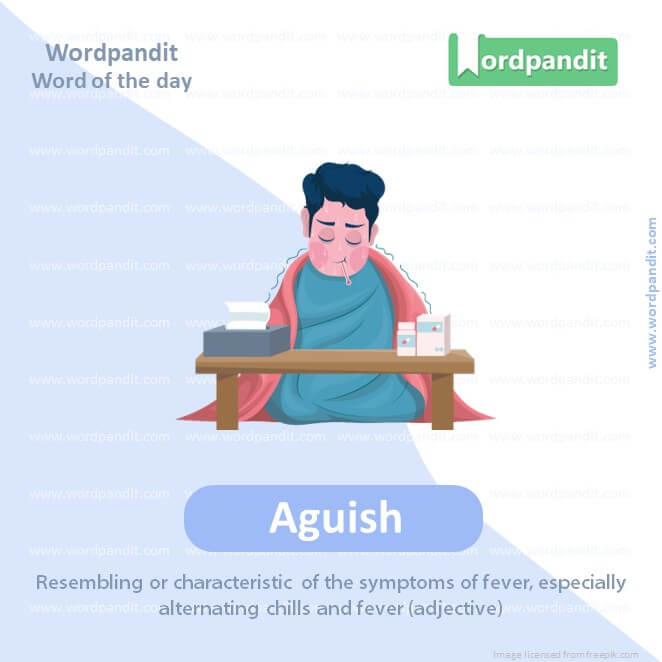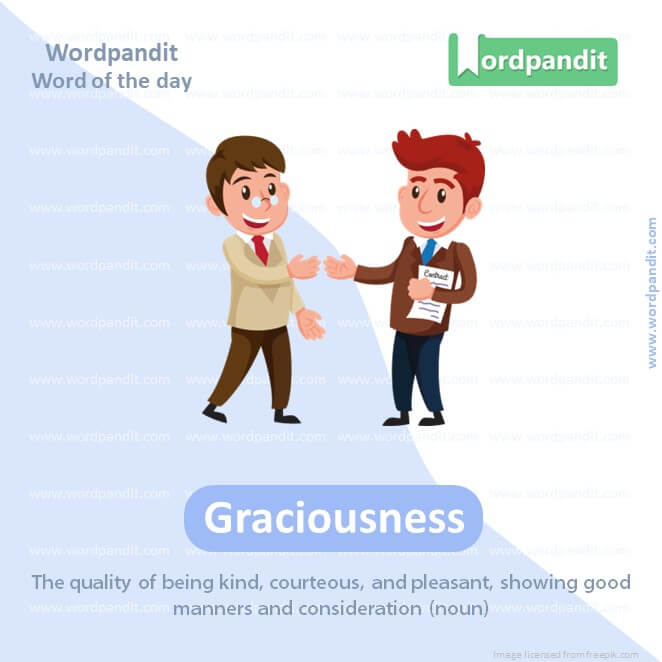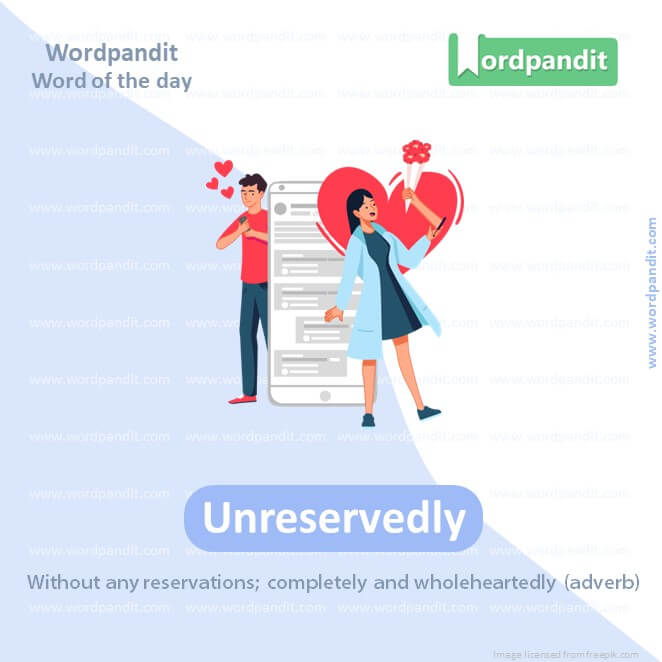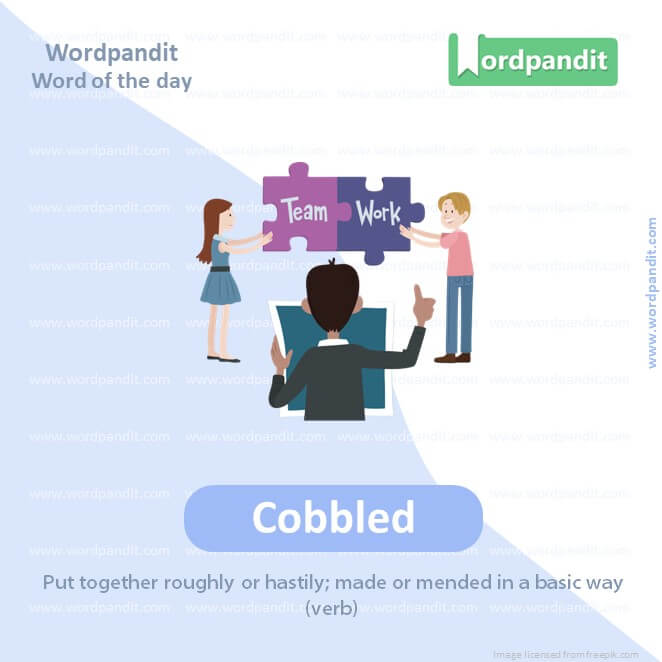Daily Vocabulary Words: List of Daily Used Words in Leading International Newspapers
Hi there. Welcome to this special section @ Wordpandit.
Our endeavour here is very simple: to highlight important daily vocabulary words, which you would come across in leading newspapers in the country. We have included the following newspapers in our selection:
• The New York Times
• The Washington Post
• Scientific American
• BBC
• The Guardian
• Psychology Today
• Wall Street Journal
• The Economist
We are putting in extensive work for developing your vocabulary. All you have got to do is be regular with this section and check out this post on a daily basis. This is your repository of words that are commonly used and essentially, we are posting a list of daily used words. Hence, this has significant practical application as it teaches you words that are used commonly in leading publications mentioned above.
Visit the website daily to learn words from leading international newspapers.

WORD-1: Aguish
CONTEXT: the anguish that these families are going through and have now for the past month.
SOURCE: Washington times
EXPLANATORY PARAGRAPH: Imagine feeling really cold and then suddenly very hot, like when you’re sick with a fever. That’s what “aguish” means. It’s like having symptoms of an illness where you feel shivery and then hot.
MEANING: Resembling or characteristic of the symptoms of fever, especially alternating chills and fever (adjective).
PRONUNCIATION: AY-gwish
SYNONYMS: Feverish, Shivery, Chilly, Ill, Unwell.
USAGE EXAMPLES:
1. She felt aguish and decided to rest.
2. The aguish symptoms made it hard to concentrate.
3. He wrapped himself in a blanket, feeling aguish.
4. The doctor noted her aguish condition during the examination.

WORD-2: Graciousness
CONTEXT: I’ve been astounded by their graciousness, selflessness and willingness to tell and retell the most painful moment of their lives so the rest of us won’t forget them.
SOURCE: New york times
EXPLANATORY PARAGRAPH: Think of a kind and polite person who always says “please” and “thank you,” and is very nice to everyone. Graciousness is when someone is like that – really kind, polite, and always thinking about others’ feelings.
MEANING: The quality of being kind, courteous, and pleasant, showing good manners and consideration (noun).
PRONUNCIATION: GRAY-shus-ness
SYNONYMS: Kindness, Courtesy, Politeness, Gentleness, Generosity.
USAGE EXAMPLES:
1. Her graciousness made everyone feel welcome.
2. He was known for his graciousness to his guests.
3. The teacher’s graciousness was appreciated by the students.
4. Graciousness marked her response to the rude comment.

WORD-3: Unreservedly
CONTEXT: the values we all hold dear and rejects unreservedly that which is antithetical to those values.
SOURCE: Al jazeera
EXPLANATORY PARAGRAPH: Imagine saying sorry to someone and meaning it with all your heart, with no doubts or holding back. Unreservedly is when you do something completely and fully, without any hesitation or doubt.
MEANING: Without any reservations; completely and wholeheartedly (adverb).
PRONUNCIATION: un-re-ZURV-ed-lee
SYNONYMS: Wholly, Completely, Totally, Absolutely, Fully.
USAGE EXAMPLES:
1. She apologized unreservedly for the mistake.
2. He unreservedly committed to the project.
3. They were unreservedly happy about the news.
4. She supported her friend’s decision unreservedly.
WORD-4: Pragmatic
CONTEXT: he might be a more skillful and pragmatic leader than many thought possible.
SOURCE: Guardian
EXPLANATORY PARAGRAPH: Think about solving a puzzle by using the pieces you have, not the pieces you wish you had. Pragmatic is when you deal with things in a practical way, using what you have and what you know works.
MEANING: Dealing with things sensibly and realistically, based on practical rather than theoretical considerations (adjective).
PRONUNCIATION: prag-MAT-ik
SYNONYMS: Practical, Realistic, Sensible, Down-to-earth, Logical.
USAGE EXAMPLES:
1. Her pragmatic approach solved the problem quickly.
2. We need a pragmatic solution, not a theoretical one.
3. His pragmatic view was appreciated in the discussions.
4. The company adopted a more pragmatic strategy.
WORD-5: Bifurcated
CONTEXT: the bifurcated structure was just a ruse to give conservatives more leverage.
SOURCE: Washington times
EXPLANATORY PARAGRAPH: Imagine a road that splits into two different paths. Bifurcated is just like that road. It means something that divides into two separate parts or branches.
MEANING: Divided into two branches or parts; forked (adjective).
PRONUNCIATION: BY-fur-kay-ted
SYNONYMS: Split, Divided, Branched, Forked, Segmented.
USAGE EXAMPLES:
1. The path bifurcated near the forest.
2. His opinions were bifurcated on the issue.
3. The river bifurcated into two streams.
4. The company’s strategy bifurcated into two distinct approaches.

WORD-6: Cobbled
CONTEXT: the entire government is thrown together into multi-thousand-page “continuing resolutions,” cobbled together behind closed doors in leadership offices.
SOURCE: Washington times
EXPLANATORY PARAGRAPH: Think about putting together a puzzle, finding pieces that fit together to make a picture. Cobbled is like making something by putting together different parts in a quick way, not always perfect, but it works.
MEANING: Put together roughly or hastily; made or mended in a basic way (verb).
PRONUNCIATION: KOB-uld
SYNONYMS: Assembled, Constructed, Patched, Pieced together, Rigged.
USAGE EXAMPLES:
1. She cobbled together a meal from leftovers.
2. The team cobbled a plan at the last minute.
3. He cobbled up a temporary shelter.
4. The project was cobbled from various ideas.

WORD-7: Therapeutics
CONTEXT: there is still much we don’t know about these therapeutics, broadly known as GLP-1 agonists.
SOURCE: Guardian
EXPLANATORY PARAGRAPH: Imagine a doctor giving medicine to make someone feel better. Therapeutics is the part of medicine that is about treating and curing diseases.
MEANING: The branch of medicine concerned with the treatment and cure of diseases (noun).
PRONUNCIATION: ther-uh-PYOO-tiks
SYNONYMS: Treatment, Healing, Cure, Remediation, Medicine.
USAGE EXAMPLES:
1. The doctor specialized in cancer therapeutics.
2. New therapeutics were developed for the disease.
3. The course covered advanced therapeutics.
4. She was interested in the therapeutics of natural remedies.
WORD-8: Perpetuity
CONTEXT: Drug manufacturers intend for patients to use GLP-1s in perpetuity. Of course, these companies have a financial interest in having people use these drugs for as long as possible
SOURCE: Guardian
EXPLANATORY PARAGRAPH: Think about something that never ends, like a circle that keeps going round and round. Perpetuity is like that. It means something that lasts forever, without stopping.
MEANING: The state of lasting forever or for an indefinite period (noun).
PRONUNCIATION: per-puh-TOO-ih-tee
SYNONYMS: Eternity, Foreverness, Endlessness, Infinity, Permanence.
USAGE EXAMPLES:
1. The land was given to the trust in perpetuity.
2. The agreement was meant to last in perpetuity.
3. They established a scholarship fund in perpetuity.
4. The monument stands as a symbol of perpetuity.
WORD-9: Regained
CONTEXT: individuals on average regained two-thirds of their prior weight loss.
SOURCE: Washington times
EXPLANATORY PARAGRAPH: Imagine losing a toy and then finding it again. Regained is like that. It means getting back something that you lost or didn’t have for a while.
MEANING: Obtained or got back something that was lost or taken away (verb).
PRONUNCIATION: ree-GAYND
SYNONYMS: Recovered, Retrieved, Reclaimed, Recouped, Restored.
USAGE EXAMPLES:
1. He regained his balance after stumbling.
2. She regained control of the situation.
3. The team regained the lead in the final minutes.
4. After the illness, he regained his strength.
WORD-10: Cessation
CONTEXT: The third goes back the concern that most short-term benefits of weight loss would be lost upon cessation.
SOURCE: New york times
EXPLANATORY PARAGRAPH: Think about playing a game and then stopping when it’s time for dinner. Cessation is like the stopping part. It means the ending of something or stopping doing something.
MEANING: The act of stopping or discontinuing something; an ending (noun).
PRONUNCIATION: se-SAY-shun
SYNONYMS: Ending, Stoppage, Discontinuance, Halting, Termination.
USAGE EXAMPLES:
1. The cessation of the rain allowed them to continue the game.
2. The treaty called for a cessation of hostilities.
3. There was a brief cessation in the conversation.
4. Efforts were made for the cessation of the harmful practices.
vocabulary diary
The traditional method of expanding your vocabulary has always involved reading extensively and learning new words as you go. In the digital age, however, a more personalized, engaging, and effective tool has emerged on the scene – the ‘vocabulary diary’. This journal-like tool is an innovative approach to language learning that guarantees significant improvement in one’s linguistic prowess and expressive ability.
A vocabulary diary enables systematic learning with a structured approach. Rather than stumbling upon new words haphazardly, you deliberately focus on new and intriguing words that catch your attention. These words are then recorded in your vocabulary diary, creating a personalized dictionary that keeps expanding.
Learning with a vocabulary diary is not about rote memorization. It’s about understanding, application, and repeated usage. When you stumble across a novel term, jot it down in your vocabulary diary along with its meaning, synonyms, antonyms, and an example sentence. This will help reinforce your understanding and contextually anchor the new word in your memory.
Using your vocabulary diary regularly also allows for review and revision. You can revisit previously learned words, ensuring they’ve been effectively embedded in your everyday vocabulary. Furthermore, having a dedicated section for phrases or idioms can enhance your language proficiency beyond single words.
However, the success of your vocabulary diary depends on consistent and devoted use. Make it a part of your daily routine. After all, the vocabulary diary is not just a static record of words; it’s a living, evolving document that mirrors your linguistic growth. It requires attention and careful nurturing.
In conclusion, the vocabulary diary offers a comprehensive and individualized approach to vocabulary enhancement. It bridges the gap between passive reading and active learning, transforming the way we perceive word acquisition. Embrace the vocabulary diary not only as a tool for intellectual growth but also as an enjoyable and fulfilling literary adventure.







